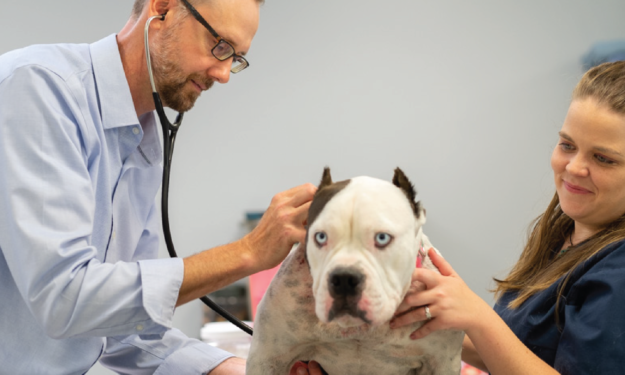Glossary of Cancers in Pets

The following list covers some of the cancers our board-certified veterinary oncologists treat in pets. This list is not exhaustive of every pet cancer. To learn more about any one of these, please click on the links.
Please visit our Glossary of Cancer Treatment Options for Pets blog to learn more about specific types of treatment options available.
Carcinomas
- Apocrine Gland Adenocarcinoma of the Anal Sac– a cancer of the apocrine gland located inside of the anal sac.
- Mammary Carcinoma– one of the most common tumors diagnosed in the female dog.
- Oral Squamous Cell Carcinoma– the most common type of oral cancer in cats.
- Transitional Cell Carcinoma– the most common tumor of the urinary bladder in dogs frequently located in the exit of the bladder into the urethra.
Lymphomas
- Lymphoma (Canine)– one of the most common types of cancers found in dogs.
- Lymphoma (Feline)– one of the most common types of cancers found in cats.
Sarcomas
- Hemangiosarcoma– one of the most malignant forms of cancer in dogs found in the cells that line blood vessels.
- Histiocytic Sarcoma– a rare tumor that may be localized or a disseminated cancer affecting multiple organs.
- Injection Site Sarcomas– tumors often located in areas where injections are frequently administered.
- Osteosarcoma– the most common primary bone tumor seen in dogs.
- Soft Tissue Sarcoma– tumors derived from connective tissue (nerves, cartilage, fibrous tissue, muscle) of the skin as well as subcutaneous tissues.
Other Tumors & Cancers
- Ear Canal Tumors– the most common type of tumors within the ear canal.
- Infiltrative Lipoma– a tumor that is usually benign, but have a high risk of local tissue.
- Mast Cell Tumors– a very common cancer in dogs commonly occurring in the skin.
- Multiple Myeloma– an abnormal proliferation of malignant plasma cells, which usually arises as a clone of a single cell.
- Nasal Tumors– somewhat common tumors affecting the nasal cavities of dogs and cats.
- Nervous System Tumors– tumors commonly found in the brain and spinal cord.
- Oral Malignant Melanoma– the most common oral tumor in dogs and can affect the lips, gingiva, and the tongue.
- Oral Tumors– cancer in dogs and cats affecting the mouth and oral cavity.
- Salivary Gland Tumors– a rare tumor arising from any major or minor accessory glands throughout the oral cavity.
- Thyroid Tumors (Canine)– originating from the thyroid gland tissue in the neck.
Ethos Discovery, a 501(c)3 nonprofit, is currently conducting studies and research to improve health outcomes for animals and humans with complex medical problems. Click here to learn more.
